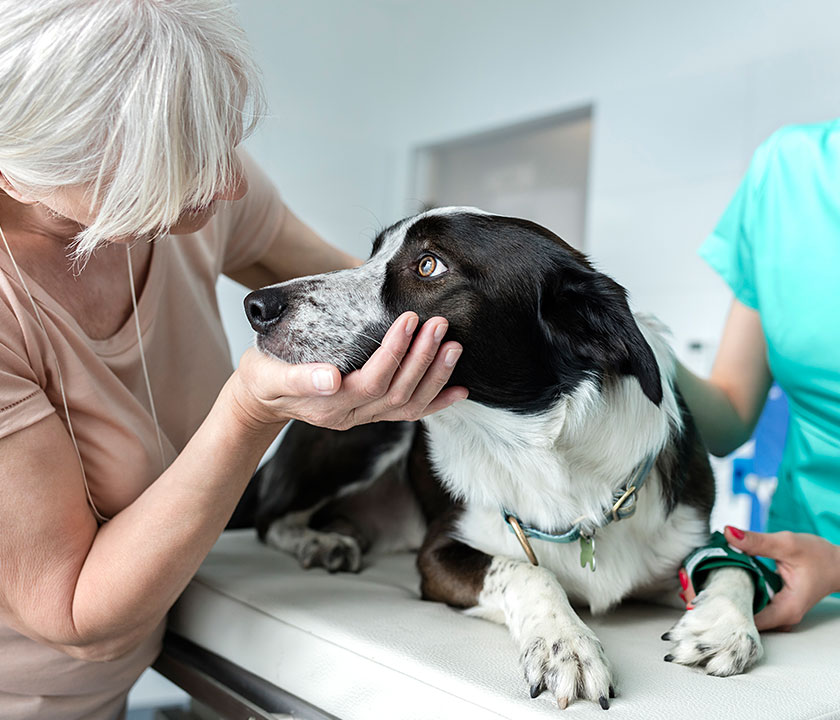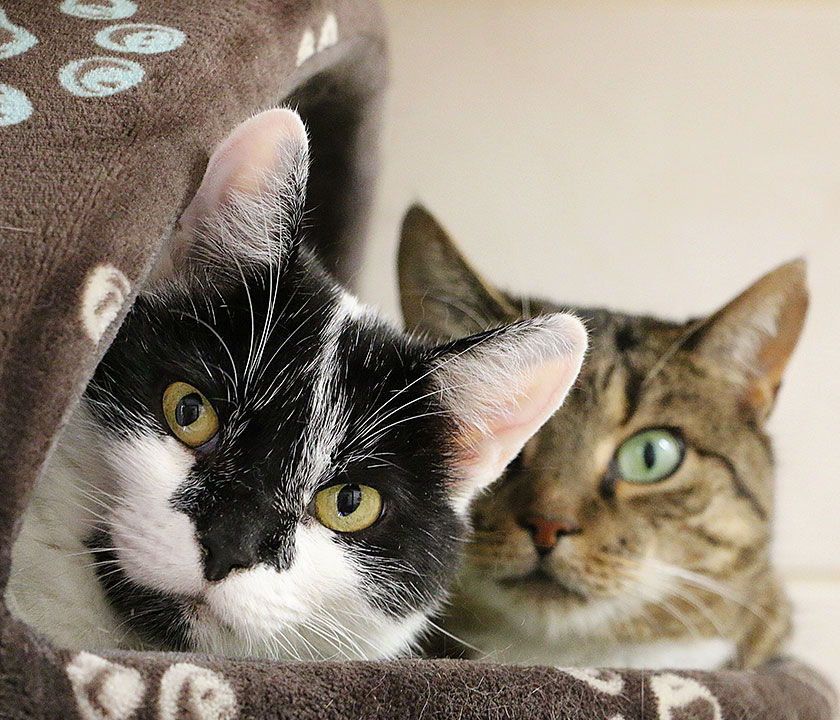Urinary Tract and Kidney Health for Pets
Protect cats and dogs from infection and disease.
Your pet's urinary tract is made up of their kidneys, bladder, and ureter, which work together to flushes wastes from their body. Infections and diseases of the urinary tract are common in pets, especially as they enter their senior years.
One of the most common reasons dogs and cats see their vet is to treat a urinary tract infection (UTI).
Almost all UTIs are caused by Escherichia coli (E. coli), bacteria that's normally found in the intestines. It can enter the bladder and cause an infection, especially in female dogs and cats, whose urethra is shorter and wider than that of a male. The typical uncomplicated UTI is easily treated with a round of antibiotics. Left untreated, a UTI can spread to the kidneys and cause complications like sepsis (blood infection) and scar tissue buildup, and can be life-threatening.
For cats, chronic kidney disease (CKD) is common, affecting over 10% of cats over age ten. In cats over 15 years old, as many as 80% suffer from CKD.
CKD is irreversible, and symptoms usually do not appear until the kidneys have lost more than 75% of their function. However, medication, supplements, and dietary modification can help slow the progression and manage symptoms. Cats with CKD can live months, even years, especially if diagnosed early.
Uroliths or bladder stones are another common urinary tract issue in pets, especially in cats. Recurrent UTIs can play a role in their formation, as well as diet, inadequate hydration, and genetics, though they can occur with no known cause. Struvite stones are more commonly linked to UTIs and can sometimes dissolve on their own with dietary changes, while calcium oxalate typically need to be surgically removed.
Bladder stones can cause a partial or complete obstruction of the urethra, preventing the cat from urinating. An obstruction or blockage is a life-threatening medical emergency that requires immediate treatment.
Why Do Pets Get Urinary Tract Infections and Kidney Disease?
Your pet's urinary tract is responsible for eliminating waste products, bacteria, and toxins from their body. It also flushes out vitamins and minerals that the body doesn't need, keeping your pet's electrolytes in balance.
When they're drinking enough water and urinating frequently throughout the day, their urinary tract can effectively flush out all of those wastes. That's why keeping your pet hydrated is the #1 way to support their urinary health.
Other ways to support your pet's urinary tract:
- Feed a high moisture diet made up of canned, fresh, raw, or rehydrated foods
- Encourage drinking by giving your pet 24/7 access to fresh, clean water
- Prevent recurring infections with supplements that contain cranberry extract or d-mannose, which keep E.coli from sticking to the bladder wall
- Feed a urinary support diet that has been approved by your vet or veterinary nutritionist if your pet has or is at risk for bladder stones, UTIs, or kidney disease
- Schedule regular wellness visits yearly for most pets, twice yearly for seniors with a urinalysis and complete blood count (CBC) test to screen for infection and disease
Healthy lifestyle choices and regular vet visits are essential to preventing urinary issues and catching disease early. And for pets diagnosed with chronic urinary issues, supportive treatments, supplements, and medications can help them live a longer, healthier life.
Save on your pet's urinary health essentials
PetMeds® carries supplements, urinary support pet foods, prescription medications, holistic remedies, and more to help you protect your pet's urinary tract health.
Save Time and Money With AutoShip
Save 35% OFF your first AutoShip order | Use code SAVE35 in cartFrequently Asked Questions about Urinary Tract Infections & Kidney Disease in Pets
Seek immediate veterinary care if your cat or dog has one or more symptoms of a UTI:
- Bloody or blood-tinged urine
- Straining to urinate
- Apparent pain during urination
- Passing little or no urine
- Having accidents indoors/outside of litterbox
I have another question about urinary tract disease in pets! Learn more with our Pet Health Advice resource center or talk to your vet at your pet's next visit.










































